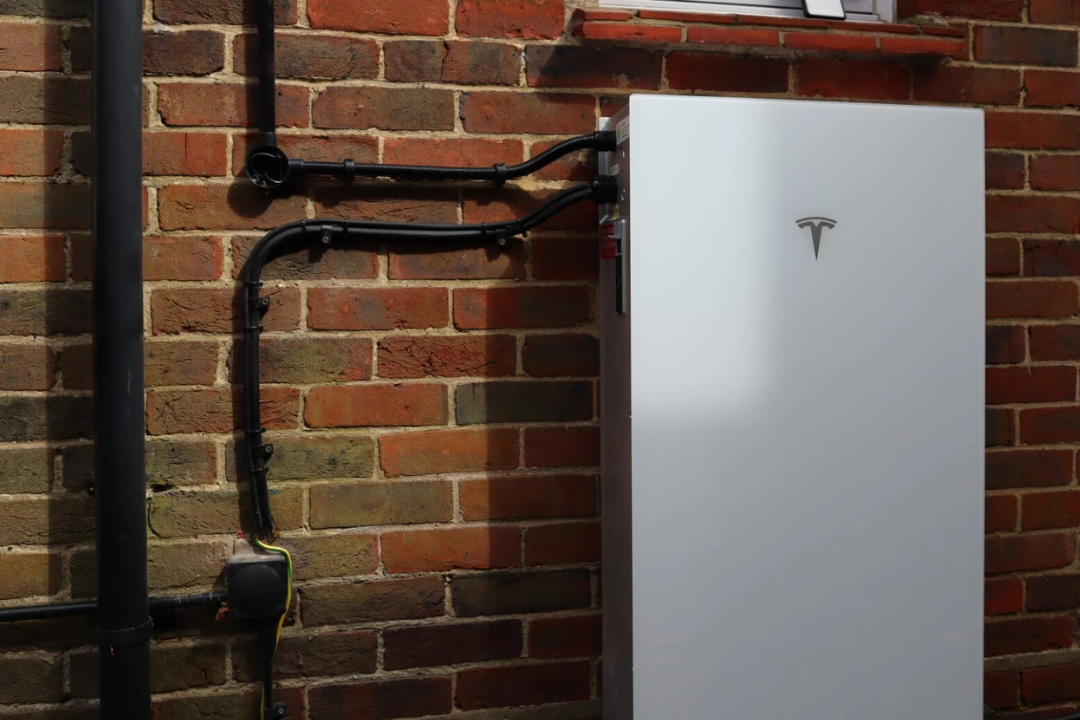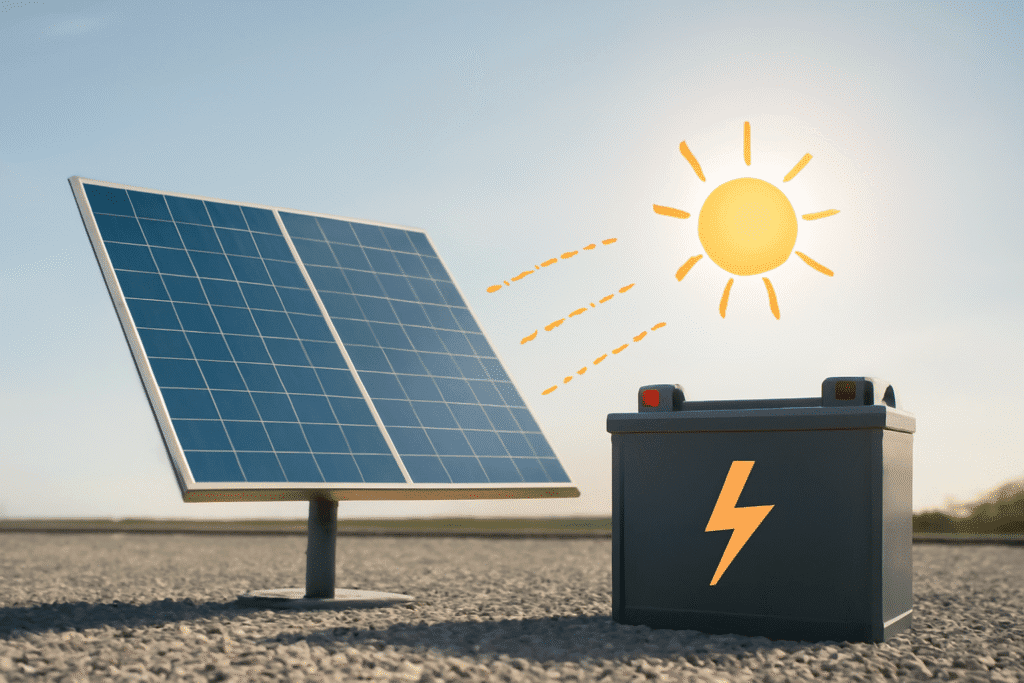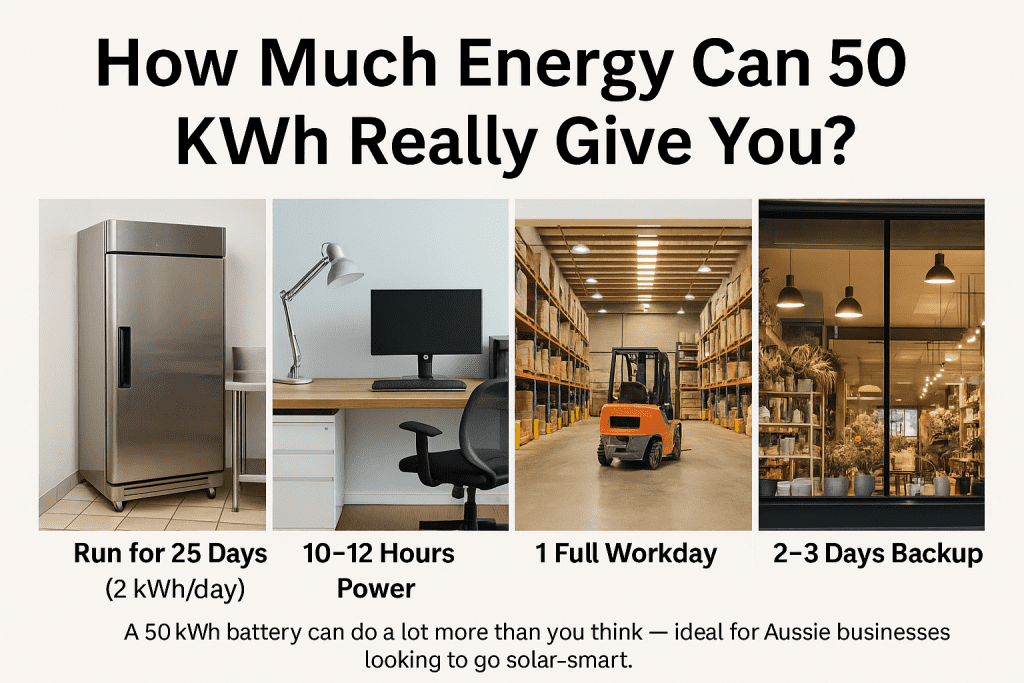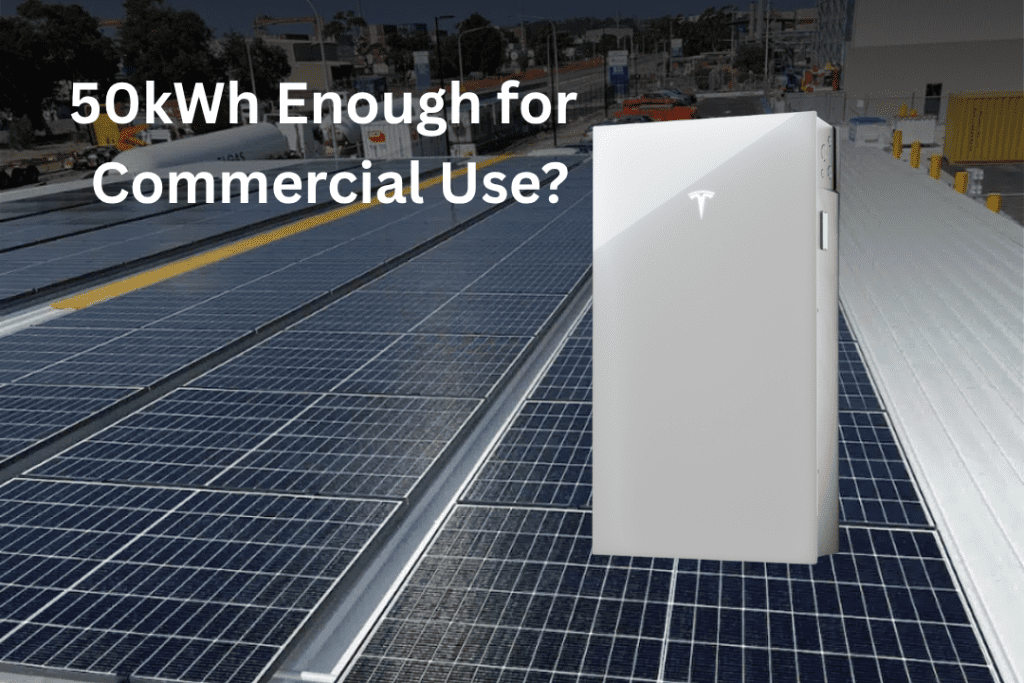SOLAR BATTERY STORAGE SYSTEM
50KWh
Large off-grid
homes & business
$9,999*
get a quote
Submit the form below, our expert will contact with you shortly!
50kWh Solar Battery
When people talk about solar batteries, they usually think of something small — maybe enough to run a few lights or a fridge. But once you step into the 50kWh range, you’re playing a whole different game. We’re talking about serious power here. A 50kWh solar battery is what many Aussie businesses, farms, and even large off-grid homes are now turning to when they want reliable, independent energy. It gives you room to grow and a good buffer for those unpredictable cloudy days. This blog breaks it all down — from what it is to how much it costs and whether it’s actually worth it for you or not.

DISCOVER THE BEST SOLAR BATTERY FOR YOUR SOLAR SYSTEM
30KWh
Solar Battery
High-usage homes with EV
$
6,299
*
Small Home
- Complete Energy Solution
- 24/7 Power Backup
- Seamless Integration
- High-Quality Energy Storage
40KWh
Solar Battery
Medium homes and small business
$
8,299
*
Medium
Home
- Complete Energy Solution
- 24/7 Power Backup
- Seamless Integration
- High-Quality Energy Storage
50KWh
Solar Battery
Large off-grid homes & business
$
9,999
*
Big Family Home
- Complete Energy Solution
- 24/7 Power Backup
- Seamless Integration
- High-Quality Energy Storage

What Exactly Is a 50kWh Solar Battery?
In plain terms, a 50kWh solar battery stores up to 50 kilowatt-hours of energy generated by your solar panels. It’s like having a giant rechargeable power bank for your business. During the day, your solar system charges it up. At night or during blackouts, you draw energy from it — no need to rely on the grid.
These are not your average home batteries. They’re built tougher, larger, and usually designed for high-usage environments like small factories, large homes off-grid, or commercial operations looking to cut energy costs.
How Much Energy Can 50kWh Really Give You?
Here’s a simple way to picture it:
Run a commercial fridge (2kWh/day) for 25 days
Power an office with lights, computers, printers for ~10–12 hours
Keep a medium-sized warehouse operational for a full workday
Back up a small retail shop for 2–3 full days during outages
You might notice how versatile this storage can be — especially if your daytime solar generation aligns well with business hours. Many Aussie businesses are using 50kWh systems to flatten peak demand charges or to run off-grid setups entirely.

What Is a Kilowatt-Hour (kWh)?
Before diving too deep, let’s clear something up. A kilowatt-hour (kWh) isn’t about speed or size — it’s about energy use over time. Think of it like this: if you use a 1,000-watt (1kW) device for one hour, that’s 1kWh of energy.
So, running a 2kW aircon for 5 hours? That’s 10kWh. Pretty simple once you get the hang of it. This unit helps us understand not just how powerful something is, but how much energy it eats up over time.
How Many Kilowatt-Hours Do You Actually Need?
This is where it gets personal. Every business is different. A small café running a few fridges, lights, and coffee machines might use around 20–30kWh per day, whereas a commercial warehouse with machinery or refrigeration units might chew through 60–100kWh daily, easy.
So if your daily usage hovers around 40–60kWh, a 50kWh battery could be the sweet spot — either covering most of your needs or acting as a solid backup during peak demand or outages.
Benefits of Installing a 50kWh Solar Battery
Let’s be real — this isn’t a small investment. But here’s what you’re getting in return:
- Energy Independence: You’re not at the mercy of grid failures or rate hikes.
- Massive Backup Capacity: Keeps you running during storms, outages, or weekends.
- Offset Peak Pricing: Use stored power when grid prices are sky-high.
- Great for VPPs (Virtual Power Plants): Some systems let you sell power back to the grid.
- Lower Carbon Footprint: Especially if paired with solar, it’s a big step toward sustainability.
And in a country like Australia — where the sun is your best friend — storing that free power just makes sense.
Potential Drawbacks to Consider
Not everything’s sunshine and savings though. A few things to keep in mind:
- Upfront Cost: It’s not cheap. Starting from around $9,999, plus installation.
- Space Requirements: These batteries are big, so you’ll need room.
- Maintenance: While most are low-maintenance, it’s still another system to monitor.
- Payback Period: Depending on your usage, it might take 6–10 years to fully recover costs.
So yeah, it’s not for everyone. But if you’ve got consistent energy needs, it’s often worth the long game.
Is 50kWh Enough for Commercial Use?

For a lot of commercial setups, yes, 50kWh is enough — especially when paired with a solid solar panel array (say, 15–20kW of panels). It’s not unlimited, of course, but it’s a strong starting point for:
Retail shops
Clinics or small offices
Small-scale farms or wineries
Warehouses with moderate equipment
That said, energy-hungry operations (like industrial workshops or cold storage) might need something even larger — say 80–100kWh or more. Still, 50kWh is often a sweet middle ground that covers most use cases without overinvesting.
Price Guide: 50kWh Battery Cost in Australia
As of 2025, prices for a 50kWh solar battery in Australia start from around A$9,999, depending on the brand, battery chemistry (like LFP or NMC), and whether it’s a modular or all-in-one unit.
Prices can vary based on:
Brand (Tesla, Sungrow, Sigenergy etc.)
Depth of Discharge (DoD)
Scalability (can you add more units later?)
Smart features (remote monitoring, VPP-ready)
Some high-end commercial models even go beyond A$21,500 when fully installed with controls and monitoring systems.
Installation Costs:
Installation costs usually run between A$1,000 to A$3,000, depending on:
Location (metro vs regional)
Whether it’s a new install or retrofit
Existing solar system compatibility
Mounting, cabling, and safety gear required
You might also need a hybrid inverter or battery management system (BMS), which adds to the total — so it’s smart to ask for a full quote with no hidden extras and check if your installer is Clean Energy Council (CEC) approved for better peace of mind.
Battery Lifespan and Warranty Insights
Most commercial-grade solar batteries come with a warranty of 10–15 years, or around 6,000+ cycles. That’s roughly one full charge and discharge per day for over 15 years.
Look out for:
Cycle life guarantee
End-of-warranty capacity (e.g., still holds 70–80% at year 10)
Manufacturer reputation
Support & servicing availability in Australia
Lithium iron phosphate (LiFePO₄) batteries are a popular choice for longer lifespan and thermal safety.
Is It Worth the Investment for Your Business?
Here’s the thing — if your energy use is consistent, daytime heavy, or you face grid instability, then yes, it can absolutely be worth it.
You might notice the savings stacking up within a few years, especially with:
Feed-in tariffs or VPP programs
Government battery rebates (like the 2025 scheme covering up to 30% of battery costs)
Avoided downtime during outages
Reduced peak energy rates
It’s not just about the money — it’s about control, stability, and future-proofing your energy strategy.
FAQs About 50kWh Commercial Solar Batteries
Q: Can I go completely off-grid with a 50kWh battery?
Yes, if your usage matches and you have enough solar input. But check your winter generation levels.
Q: Can I stack batteries to go beyond 50kWh?
Absolutely. Most commercial systems are modular — you can double or triple up.
Q: Are there rebates in Australia for 50kWh batteries?
Yes! Starting July 2025, the federal rebate covers up to 30% of battery costs, capped at 50kWh.
Q: Do I need 3-phase power for this?
For commercial use, most likely yes — but your installer will guide you.
WE INSTALL CEC APPROVED POPULAR SOLAR BATTERIES IN AUSTRALIA





- Tesla Powerwall
Great for storing solar energy at home because it is very efficient and lasts a long time.
- Sungrow Battery
Works well and is affordable. It can be used in homes and businesses.
- Sigenergy Battery
A dependable storage option that focuses on being eco-friendly and simple to use.
- Growatt Battery
A small, affordable option that works well.
- GoodWe Battery
A solar storage battery that is reliable, long-lasting, and very efficient.
- LG Chem Battery
Reliable and powerful. Perfect for homes or small businesses needing long-lasting backup.
